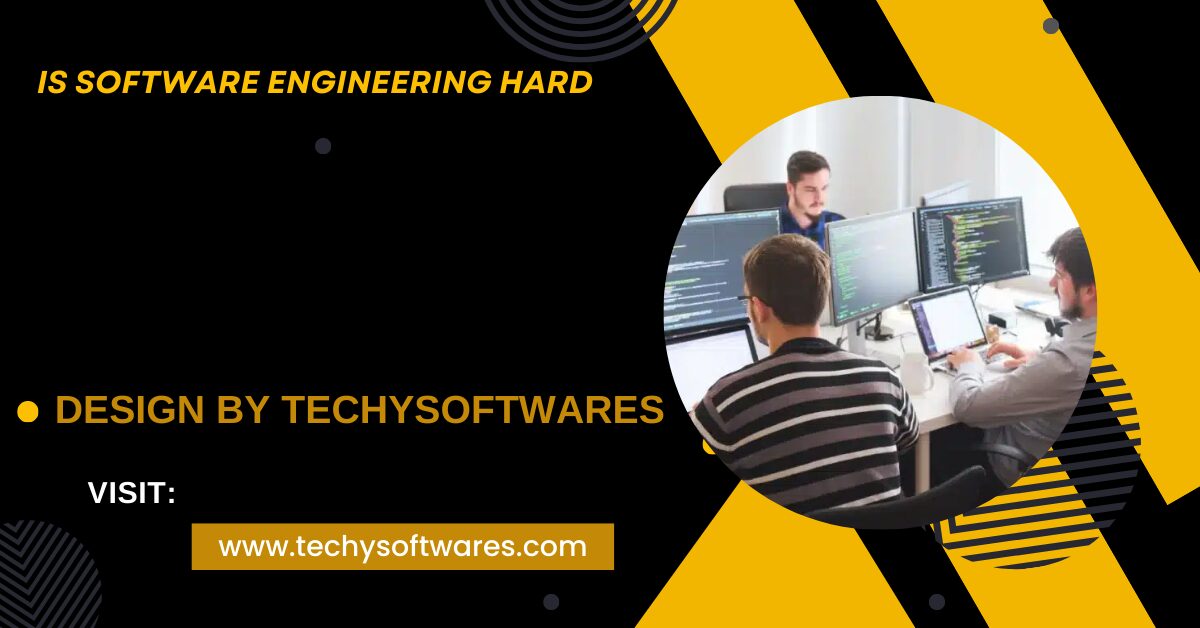Yes, a computer science degree offers strong foundational skills in programming and problem-solving, enabling an easy transition into software engineering.
In this article, we’ll explore the key points of how a computer science degree relates to a career in software engineering, the skills needed, and some practical steps to make this transition seamless.
Understanding Computer Science and Software Engineering: The Overlap

Computer science (CS) and software engineering (SE) are closely related but focus on slightly different areas:
- Computer Science: This is the theoretical study of how computers process information, with a focus on programming, algorithms, data structures, computational theory, and more.
- Software Engineering: SE focuses on applying CS principles to develop software systems that solve real-world problems. It includes design, development, testing, and maintenance of software.
While computer science is more academic and theoretical, software engineering is more application-oriented. However, both disciplines overlap significantly, especially in programming and problem-solving.
Skills from a Computer Science Degree Relevant to Software Engineering:
A computer science degree prepares you well for a software engineering career by providing essential skills, such as:
- Programming Proficiency: CS majors learn several programming languages (e.g., Python, Java, C++), which are highly valuable in software engineering.
- Algorithm and Data Structures: Key concepts like sorting algorithms, graph theory, and data organization are crucial in building efficient software.
- Problem-Solving Abilities: The core of CS education revolves around breaking down complex problems and finding logical solutions, a skill that’s indispensable in software engineering.
- Mathematics and Logic: CS students typically study discrete mathematics and logic,
which help develop the analytical thinking required for complex coding.
- Project and Team Collaboration: Many CS programs include group projects that simulate real-world software development scenarios, preparing you for collaborative work environments in engineering.
Additional Skills That Can Strengthen Your Software Engineering Career:
While a computer science degree covers most foundational skills, enhancing your resume with the following skills can make you more competitive in software engineering:
- Version Control (e.g., Git): Essential for team-based software development, version control allows you to track changes and collaborate efficiently.
- Software Development Methodologies: Learning agile methodologies (e.g., Scrum, Kanban) can help you integrate into software development teams quickly.
- Testing and Debugging: Software engineering involves rigorous testing and bug fixing. Familiarity with unit tests, integration tests, and debugging tools is highly beneficial.
- DevOps Basics: Understanding tools like Docker, Jenkins, and cloud platforms like AWS can give you an edge in software deployment and continuous integration/continuous delivery (CI/CD).
How to Transition from Computer Science to Software Engineering:
If you’re a computer science graduate or student aspiring to work in software engineering, here’s a simple roadmap to get started:
Gain Practical Experience:
Practical experience is invaluable, so work on personal projects or contribute to open-source projects. Building your own applications or contributing to existing ones will help you understand how software engineering principles apply in the real world.
Internships and Entry-Level Positions:
Many companies offer internships or entry-level positions for software engineers that welcome computer science graduates. These roles are designed to provide hands-on experience with real projects, exposing you to software development best practices.
Also Read: Managing Director At Alternative Software – A Detailed Guide!
Online Courses and Certifications:
Platforms like Coursera, Udacity, and Udemy offer courses in software engineering and related skills, such as DevOps, testing, and software architecture. Adding certifications to your profile can make you more attractive to potential employers.
Networking and Mentorship:
Connect with software engineers through networking events, LinkedIn, or tech communities. Learning from experienced professionals can offer insights into industry expectations, trends, and tools.
Build a Strong Portfolio:
Develop a portfolio showcasing your projects. Whether it’s a web application, mobile app, or algorithm you developed, a portfolio can demonstrate your technical ability and passion to potential employers.
Common Software Engineering Roles for Computer Science Graduates:

Computer science graduates are often recruited for roles such as:
- Frontend Developer: Focus on building the visual and interactive aspects of applications using HTML, CSS, and JavaScript.
- Backend Developer: Work on server-side code, databases, and APIs, utilizing languages like Java, Python, and SQL.
- Full Stack Developer: Handle both frontend and backend development, offering flexibility in roles and responsibilities.
- Mobile Developer: Specialize in creating applications for mobile devices using languages like Swift (iOS) and Kotlin (Android).
- Quality Assurance (QA) Engineer: Focus on testing software for bugs and quality, ensuring a smooth user experience.
Benefits of Pursuing Software Engineering with a Computer Science Degree:
Choosing software engineering with a CS background has its advantages:
- Wide Career Options: A CS degree offers a broad understanding of technology, allowing you to pivot into other tech roles like data science, cybersecurity, or system analysis.
- High Demand and Job Security: Software engineering is one of the most in-demand jobs, with high job satisfaction and competitive salaries.
- Continuous Learning: CS grads often have strong theoretical foundations, making it easier to adapt to emerging technologies, languages, and frameworks in software engineering.
FAQ’s
1. Can I become a software engineer with a computer science degree?
Yes, a computer science degree equips you with the technical skills and foundational knowledge needed to start a career in software engineering.
2. What skills from computer science are useful in software engineering?
Key skills include programming proficiency, understanding algorithms and data structures, problem-solving, and knowledge of mathematics and logic.
3. Are additional certifications helpful for transitioning to software engineering?
Yes, certifications in areas like DevOps, testing, and software development methodologies can enhance your resume and improve your chances of landing a software engineering role.
4. What kind of roles can computer science graduates pursue in software engineering?
Roles include frontend developer, backend developer, full stack developer, mobile developer, and quality assurance (QA) engineer.
5. How can I gain practical experience in software engineering?
Working on personal projects, contributing to open-source projects, or completing internships provides valuable hands-on experience.
6. What are the benefits of choosing software engineering with a computer science background?
Benefits include access to a wide range of tech roles, high demand and job security, and a foundation for continuous learning in emerging technologies.
Conclusion
So, can you do software engineering with a computer science degree? Absolutely! The transition is natural and often seamless, given the overlapping skill sets. With a solid foundation in computer science and a proactive approach to building your skills, you can confidently step into software engineering, opening up a world of innovation, creativity, and problem-solving.




